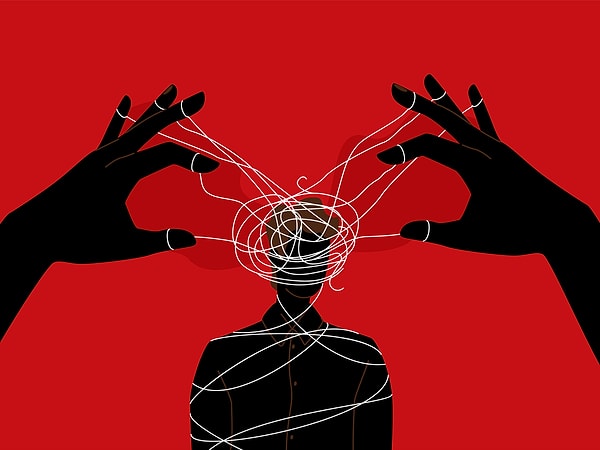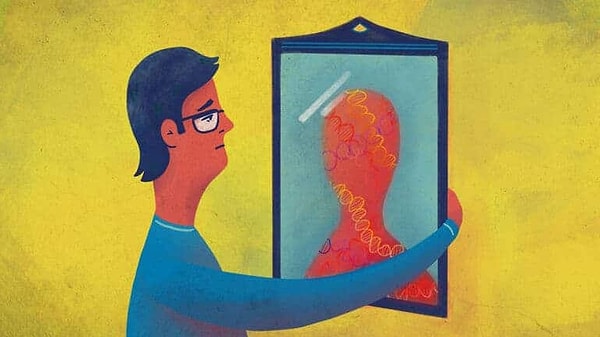The Shocking Link Between Narcissism and Brain Shrinking
Did you know that narcissism doesn’t just affect someone's behavior—it can also physically shrink your brain? Narcissistic Personality Disorder (NPD) is more than just self-centeredness; it has surprising physiological effects. According to expert psychologist Ayşenur Acar, individuals with narcissistic traits can experience brain shrinkage, leading to memory issues, difficulty making decisions, and more. In this article, we uncover how narcissism can harm your brain and why understanding it is crucial. Read on for the full shocking details!
What Is Narcissistic Personality Disorder?

Narcissism isn’t just about being self-absorbed or having a high opinion of oneself; it’s a complex psychological condition. Individuals with Narcissistic Personality Disorder often struggle with empathy, have a constant need for validation, and engage in manipulative or controlling behaviors to maintain their sense of superiority. But there’s more to this disorder than what meets the eye, and it goes far beyond the personality traits most of us are familiar with.
The Link Between Narcissism and Brain Shrinking

Recent studies have found that people with narcissistic traits may experience physical changes in their brain. According to psychologist Ayşenur Acar, individuals with narcissistic personality traits may suffer from reduced brain size. This shrinkage is not just in one area of the brain—it can affect different regions involved in emotional regulation, decision-making, and memory.
But how does narcissism physically impact the brain? It all has to do with the way the narcissistic brain processes emotions and interactions with others. Narcissistic individuals have difficulty forming genuine emotional connections, leading to altered brain functioning that affects how they manage stress and engage in meaningful relationships.
Cognitive and Emotional Consequences

The impact of narcissism on the brain is not just about physical shrinkage—it also translates into real-life challenges. As brain volume decreases, individuals with narcissistic tendencies may face the following issues:
Memory Problems: Narcissistic individuals may struggle with memory retention or recall. As certain brain regions shrink, it becomes more difficult for them to remember key details, which can lead to inconsistent or unreliable recollections.
Decision-Making Challenges: Reduced brain volume, particularly in areas responsible for impulse control and emotional regulation, can make it harder for narcissistic individuals to make sound decisions. Impulsive behaviors often result from this cognitive imbalance.
Weakened Emotional Regulation: Narcissistic individuals are often emotionally unstable, shifting between exaggerated self-esteem and deep insecurity. This instability stems from the impaired functioning of brain regions responsible for regulating emotions, making it difficult for these individuals to manage their feelings and responses.
The Long-Term Effects of Narcissism on the Brain

While these brain changes are concerning, they aren’t just temporary. Over time, individuals with narcissistic tendencies may face more severe consequences, including:
Increased Anxiety and Stress: Without the ability to effectively manage emotions, narcissists may experience heightened stress levels, which can further exacerbate cognitive issues.
Relationship Struggles: Narcissism’s impact on the brain can make forming and maintaining healthy relationships incredibly challenging. This can lead to social isolation, depression, and even a further decline in cognitive abilities.
How Can You Protect Yourself?

Understanding narcissism is key to recognizing the early signs and preventing further damage. If you’re struggling with narcissistic traits or are involved with someone who exhibits these behaviors, seeking professional psychological support can help you address the condition before it takes a toll on your well-being.
Psychologists may suggest therapy to help narcissistic individuals learn healthier ways of relating to others, managing their emotions, and addressing the cognitive issues associated with their condition. Cognitive-behavioral therapy (CBT) is often used to help individuals identify patterns of thinking that reinforce narcissistic behaviors, and it can also aid in reducing the physical impacts on the brain.
The Hidden Dangers of Narcissism

While narcissism is often seen as a personality quirk or an annoying trait, it’s important to recognize the deeper, more damaging effects it can have on an individual’s brain and life. Brain shrinkage, cognitive decline, and emotional instability are all serious consequences that may result from untreated narcissistic behavior. Understanding the connection between narcissism and brain health is crucial for both prevention and treatment, and it’s something we should all keep in mind when dealing with this condition.
If you or someone you know is exhibiting narcissistic traits, consider seeking guidance from a mental health professional to address the issue before it escalates further. After all, the mind is just as important as the personality—and we can all benefit from maintaining both in good health.
Keşfet ile ziyaret ettiğin tüm kategorileri tek akışta gör!


Send Comment